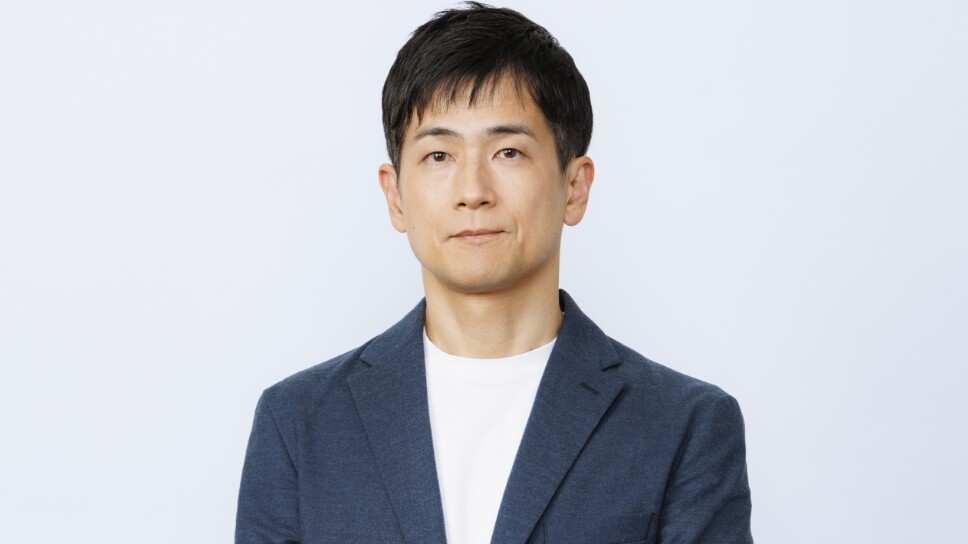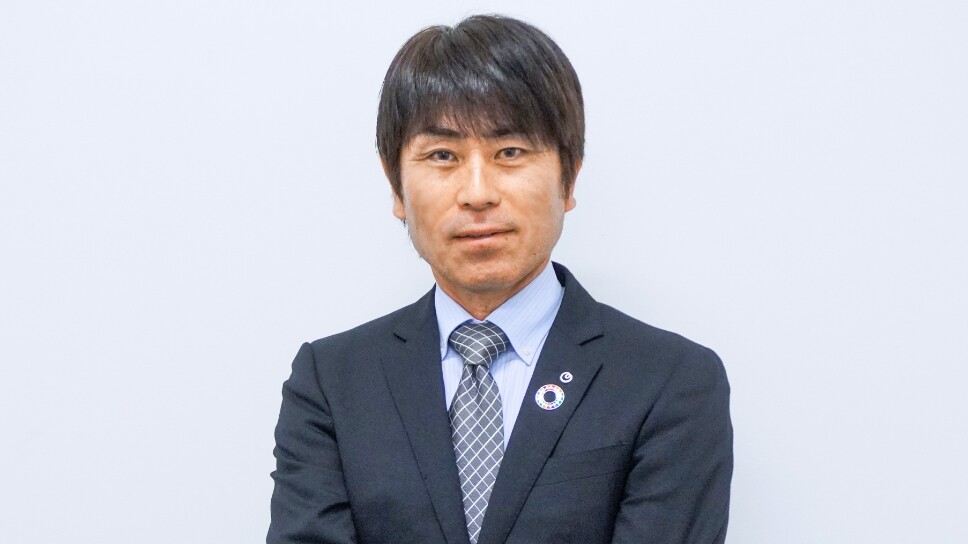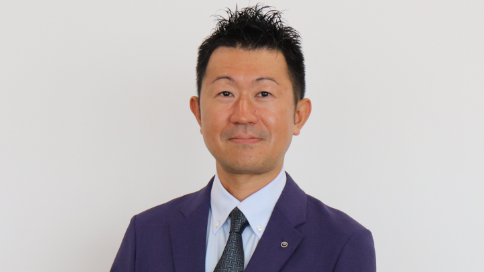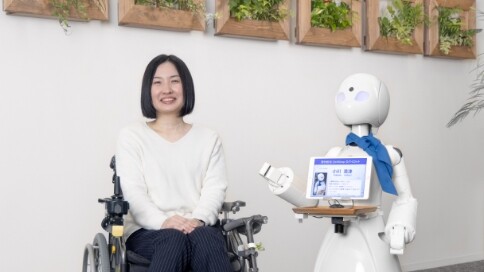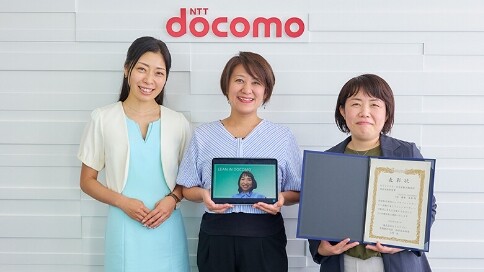Microsoft ends support for Internet Explorer on June 16, 2022.
We recommend using one of the browsers listed below.
- Microsoft Edge(Latest version)
- Mozilla Firefox(Latest version)
- Google Chrome(Latest version)
- Apple Safari(Latest version)
Please contact your browser provider for download and installation instructions.
NTT's Sustainability Efforts
New regional communities created by "another workplace"
NTT Urban Value Support, Inc. Relations Promotion Division (At the time of interview)
Mutsumi Kishida

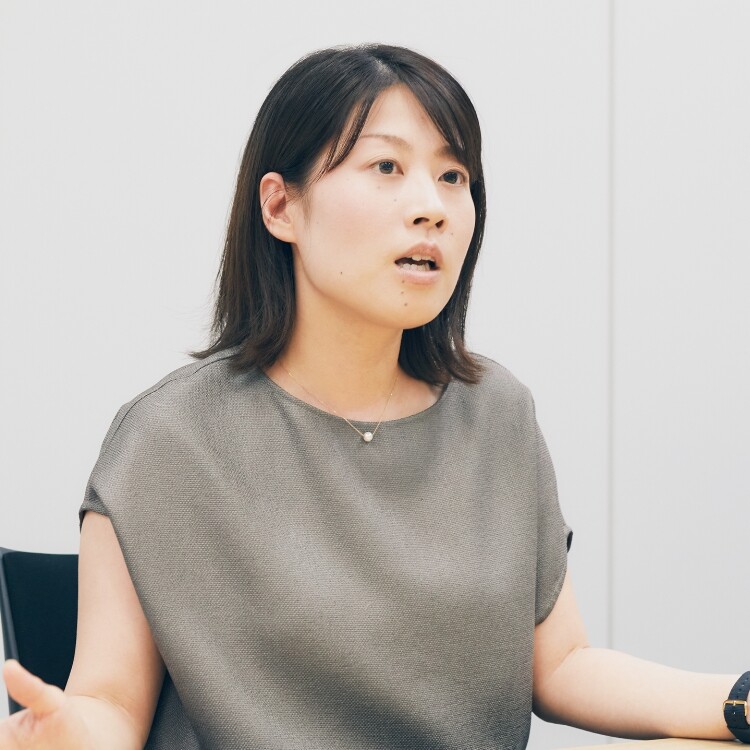
Maintaining employee health, while developing environments equivalent to the office
In April 2020 when the first state of emergency was declared in response to the COVID-19 outbreak, employees at countless companies were prevented from turning up at their offices. Companies shifting to work styles based on remote work and the employees working at those companies had to face a new range of challenges specific to remote work. The NTT Group was certainly no exception in this regard.
"Even before COVID-19, the NTT Group developed a system that allowed for remote work eight times a month, as a way of countering the expected congestion with transportation infrastructure during the Tokyo 2020 Olympic and Paralympic Games. Yet COVID-19 meant the NTT Group had to limit all employees from working at offices, which in turn created problems specifically related to remote work. Even if people had computers and accessories at home, their setup is very different to that of working at the office, and employees with partners and children in the same area had difficulties concentrating on work." (comment from Mutsumi Kishida also follows below)
Some 330,000 employees working at more than 900 companies support the NTT Group worldwide. And each employee has its own household and its own environment. This approach was neither a conventional office, nor is it quite, home. We needed to provide an area suitable for remote work as quickly as possible.
"Even during the COVID-19 pandemic, we needed to ensure the health of employees and society, while also sustaining our business operations."
To allow each employee to select their own workplace where they could work in the most lively manner, we embarked on a project to open satellite offices for employees of the NTT Group.
"We will take the initiative and lead by example." Quickly increasing the number of satellite offices
The NTT Group owns some 7,000 "office buildings" around the country that are equipped with communications facilities. They are located in many areas around Japan--not only in cities, but also residential areas and almost every other type of area. This project aimed to turn some of those buildings into suburban satellite offices for use by employees of the NTT Group nationwide. Yet there were numerous challenges to overcome in order to achieve this.
"Despite being buildings within the NTT Group, they all have different structural layouts and different methods of entry. Some facilities look like proper buildings, while others have an appearance more resembling a shed in a wide open field. We had to coordinate with the management department of each and every building to source equipment required for using them as satellite offices and to establish rules for entering the building."
Every building that would become a satellite office needed to be planned carefully. The project team successfully opened its first such building in October 2020, around half a year after the state of emergency was declared--and subsequently worked at an unprecedented pace at preparing the buildings, and ended up opening 10 satellite offices during fiscal 2020, and 50 during fiscal 2021.
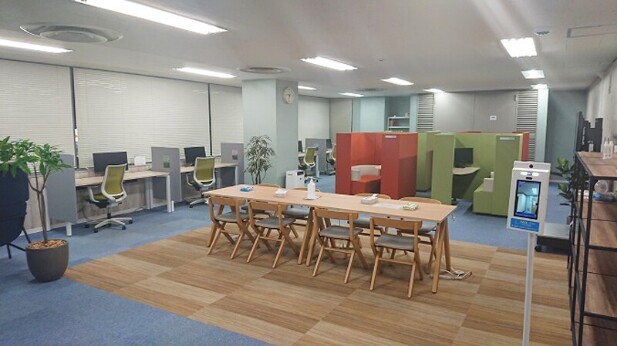 View of Satellite Office Noborito, the first office that opened
View of Satellite Office Noborito, the first office that opened
"At the time, the government issued a request to companies to limit the ratio of employees working at offices. Here at the NTT Group, we need to take the initiative and demonstrate to society that we are pressing ahead to achieve remote work. I believe that the corporate culture of NTT is one where we are fully committed to achieving an objective that we have set ourselves. I feel that the fact that this is a common attribute throughout the entire group was a key to making the project a success.
Even our project team worked on arranging offices then running a PDCA cycle, instead of taking the traditional approach of making detailed plans."
Creating the value of "regional communities"
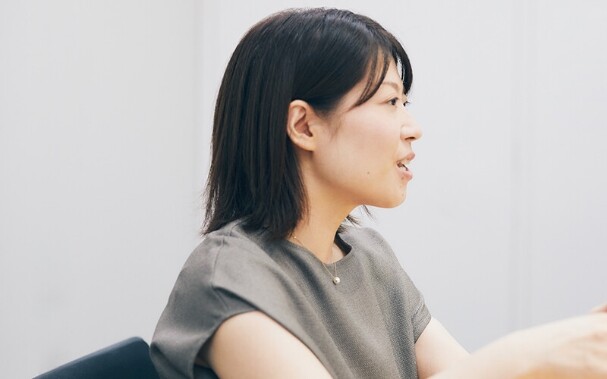
The number of these satellite offices continued to grow throughout the NTT Group, and today around 5,000 employees are registered to use them. Ms. Kishida organizes both tangible and intangible improvements to enhance the usage ratio of buildings and responds to inquiries from users--she receives a range of feedback like "The office was easy to work in" and "Thank you for providing a comfortable workplace." User feedback indicates that there are still challenges that need to be addressed, so efforts are being made to create offices that are even easier to work at.
When the state of emergency was declared, we needed to quickly develop an environment that employees could work with. A long-term vision has emerged in recent years, covering the COVID-19 and post COVID-19 stages, and the role of these satellite offices are shifting to providing an environment that is easy for each and every employee to work at. The value of the sense of community at satellite offices looks like it is being recognized once again.
"We operate these satellite offices as unmanned offices. To achieve this, the cooperation of users is essential. I hope management and users are able to create a workplace and community that is easy to work at.
Several locations actually have users communicating with each other in a casual manner, resulting in a very user-friendly atmosphere--this was the moment when we realized that the actual users provide the best tips for how to run satellite offices. Communication between users means they get to know each other better, and they may even be neighbors living in the same area. It would be great if these satellite offices result in greater interaction outside of work and lead to new friendships where users help each other with their parenting or nursing efforts, provide mutual advice if they run into issues, or simply talk over a cup of tea on the way home from work."
Expand interaction at satellite offices to greater coordination throughout the NTT Group
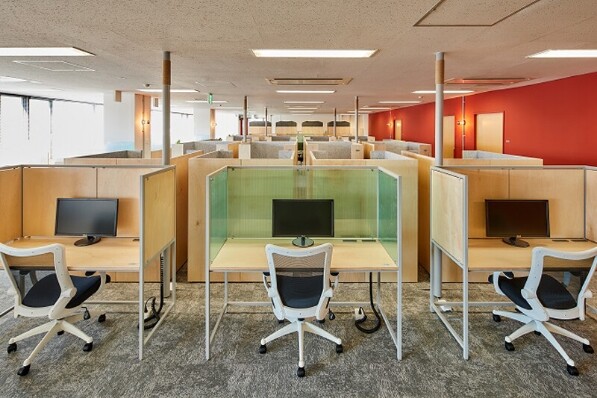 Urayasu Gyotoku satellite office
Urayasu Gyotoku satellite office
Interactions have become rare due to remote work, but satellite offices are hoped to become venues where such relationships can be rekindled.
"After going through COVID-19, I feel that people have become aware of the importance of interactions and communications. Satellite offices are venues where NTT Group employees from a diverse range of backgrounds come together, and I hope they become a place where the local community can meet up for a quick chat, instead of merely as a location people work at. From there, it would be interesting to see business opportunities that serve the local community being spread throughout the NTT Group.
Sustainability
NTT STORY
WEB media that thinks about the future with NTT



